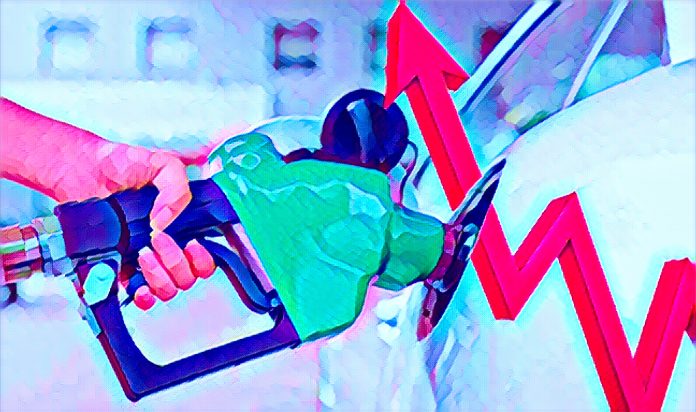The ongoing petrol scarcity in Nigeria took a turn for the worse, with prices hitting unprecedented levels in many states. Independent fuel marketers are now purchasing petrol at N780 per litre from private depots, a significant increase from the previous N595 per litre, and this surge has caused chaos for both drivers and commuters.
In Lagos, Ogun, and several other states, long queues have returned to petrol stations as motorists scramble to buy fuel. The situation has become dire, with many stations either running out of stock or selling at prices as high as N950 per litre. While some stations operated by major marketers offer slightly lower prices, the difference does little to ease the burden on consumers.
Chief Chinedu Ukadike, the Public Relations Officer of the Independent Petroleum Marketers Association of Nigeria (IPMAN), confirmed that the price hike reflects the current imbalance between supply and demand in the domestic market. Despite this, he expressed hope that the situation might improve in the coming days as more fuel trucks leave the depots.
However, the high cost of transporting fuel, especially during the rainy season, has only worsened the situation. Ukadike explained that it now costs significantly more to transport petrol, with expenses for trucks rising from N800,000 to N3.5 million due to the soaring cost of diesel and vehicle maintenance.
As a result of the fuel shortage, transport fares have surged by over 200%, putting even more strain on ordinary Nigerians. A trip from Ikorodu to Victoria Island in Lagos, which used to cost less than N2,000, now costs around N6,000. Drivers are struggling to make ends meet, with many reporting that they can no longer fill their vehicles with passengers, forcing them to raise fares just to stay in business.
Emmanuel Okonkwo, a bus driver who regularly travels between Lagos and Owerri, described the situation as bleak. “There’s no fixed fare anymore. We have to charge what we can to keep our business alive, but even then, people aren’t traveling as much because they can’t afford it,” he said.
For drivers like Eugene Eze, who operates between Lagos and Port Harcourt, the situation is just as challenging. “We’re spending hours in queues just to get fuel, and even when we do, the high prices mean we’re barely making a profit. If this continues, we might be forced off the roads entirely.”
In Lagos, many fuel depots are running out of stock, leading to further price hikes. Some operators are reportedly planning to increase their prices to N800 per litre, making an already difficult situation even worse for consumers. The lack of oversight from the Nigerian Midstream and Downstream Petroleum Regulatory Authority (NMDPRA) has allowed these irregularities to continue unchecked.
According to Dapo Segun, Vice President of the Nigerian National Petroleum Corporation (NNPC), the recent heavy rains, lightning, and thunderstorms have severely impacted the transportation of petroleum products across the country. He explained that these weather conditions have made it difficult to navigate key channels like Escravos, further delaying the delivery of fuel to depots.
The ongoing fuel crisis has prompted strong reactions from various groups. The Petroleum and Natural Gas Senior Staff Association of Nigeria (PENGASSAN) has warned that the country is on the path to becoming a failed state if it cannot meet its energy needs. PENGASSAN President, Engr. Festus Osifo, criticized the government’s economic policies, particularly the devaluation of the Naira, which he said has led to skyrocketing prices for petrol and other essential goods.
Osifo emphasized that the current hardship faced by Nigerians is a direct result of these policies. “The cost of living has gone through the roof, and the government’s actions are making it worse. If things don’t change, the consequences will be dire,” he warned.
As Nigeria grapples with this fuel crisis, the future looks uncertain. With prices continuing to rise and supply remaining tight, the impact on everyday life is becoming more severe. The government and regulatory bodies face increasing pressure to find a solution, but until then, Nigerians are left to



